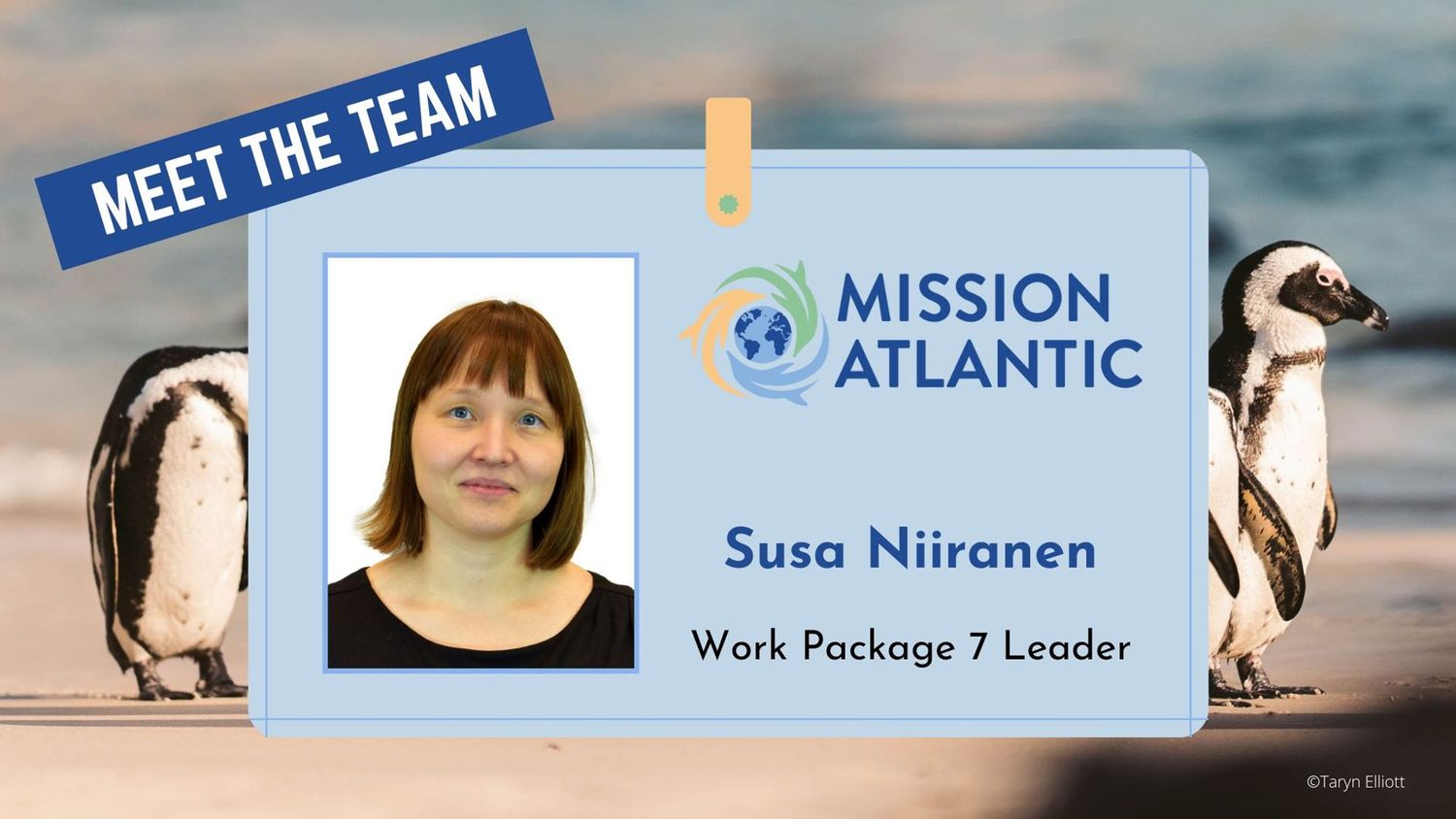Meet the MISSION ATLANTIC Scientists: Susa Niiranen, Lead on Risk Assessment and Uncertainties (WP7)
Where are you from and where are you currently based?
I am originally from Finland but have worked in Sweden for several years back. Currently, I work at the Stockholm Resilience Centre of Stockholm University, where I also co-lead a Human Ocean research theme.
Academic background and research areas:
PhD in marine ecology from the University of Stockholm.
My research is largely focused on how marine systems respond to changes in multiple human-induced and natural pressures, such as fishing, climate change, and pollution from land. Previously, I have worked a lot with marine food webs, studying changes in their function and structure using mathematical models as my main research tool. In my current work, I am exploring concepts such as ecosystem resilience and risk in relation to the benefits that oceans can provide to humans. My journey in marine research started in the Baltic Sea but has so far also allowed me to work with a broad range of other marine systems including the Arctic Ocean, Black Sea, and of course the Atlantic Ocean.
Current role and work within MISSION ATLANTIC:
In MISSION ATLANTIC, I lead the WP7 on Risk Assessment. In this work package, we focus on identifying the sectors and pressures that cause the highest risk to marine ecosystems in each MISSION ATLANTIC case study, as well as the Atlantic Ocean as a whole. We also identify which parts of these ecosystems are particularly vulnerable to different pressures and what is their capacity to recover after a disturbance. Once available, the results will be directly used to inform the Integrated Ecosystem Assessment (IEA) of the Atlantic, which is at the core of this project. The preliminary results have identified some key sectors the role of which will be further studied using a mix of qualitative and quantitative risk assessment methods, including – but not limited to - fishing, shipping, and land-based pollution.
All work we do in this work package relies heavily on the expertise of each MISSION ATLANTIC case study including the stakeholder interaction that takes place.
Do you have anything about the Atlantic Ocean you would like to share?
Oceans provide surprisingly many things to us – from what we eat to how we spend our holidays, how our goods are transported to us, or how our climate is. Oceans are important – take good care of them!
Favourite ocean fact:
It takes on average 30-50 years to replace all the water in the Baltic Sea. This means that the water is (on average) replaced twice in a lifetime of a person!
What is your highlight from the project so far?
So far, the highlight must be the 2022 general assembly in Gran Canaria, where we were finally able to meet in person with most of the MISSION ATLANTIC project team. This meeting resulted in a lot of new research ideas and inspiration that will be beneficial for the project. It also clearly showed that even if online meeting tools are super useful for keeping in contact, in-person meetings give so much more!
Contact details:
Email: susa.niiranen@su.se
Stockholm Resilience Centre Staff Profile: Susa Niiranen
